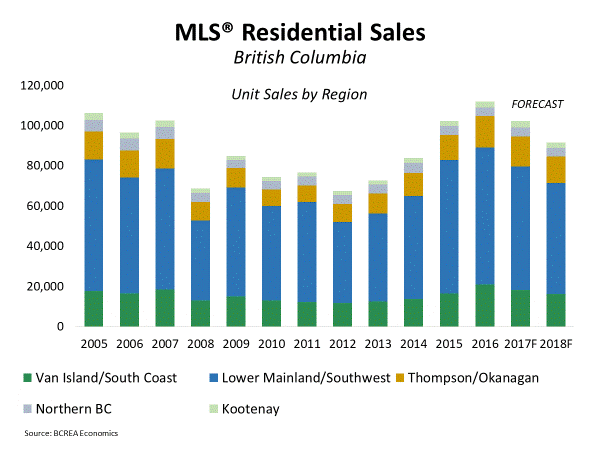BC Housing Demand to Slow Through 2019, BCREA 2018 First Quarter Housing Forecast Update
Vancouver, BC – March 9, 2018. The British Columbia Real Estate Association (BCREA) released its 2017 Fourth Quarter Housing Forecast today.
Multiple Listing Service® (MLS®) residential sales in the province are forecast to decline 8.6 per cent to 94,855 units in 2018, after decreasing 7.5 per cent in 2017. A record 112,209 unit sales were recorded in 2016. The ten-year average for MLS® residential sales in BC is 84,800 units. Strong employment growth, consumer confidence and favourable demographics have been highly supportive of housing demand over the last four years. However, slower economic growth, tougher mortgage qualification rules, and a rising interest rate environment are expected to slow the pace of housing demand over the next two years.

The 5-year qualifying rate is forecast to rise 35 basis points to 5.49 per cent by Q4 2018, and another 21 basis points to 5.70 per cent by Q4 2019. “With home prices already at an elevated level, BC households are more vulnerable to rising interest rates.”
The supply of homes for sale continues to trend at or near decade lows in most BC regions. However, this condition hasn’t gone unnoticed by home builders. There are over 60,000 homes now under construction in the province, well above the previous peak of 45,000 units recorded in 2008. In Metro Vancouver, over 42,000 units are in the pipeline, 56 per cent more than recorded in 2008. Slowing consumer demand combined with a surge in new home completions over the next several quarters will create more balance in the housing market and produce less upward pressure on home prices. The average MLS® residential price in the province is forecast to increase 6.0 per cent to $752,000 this year, and a further 4.0 per cent to $781,800 in 2019.
